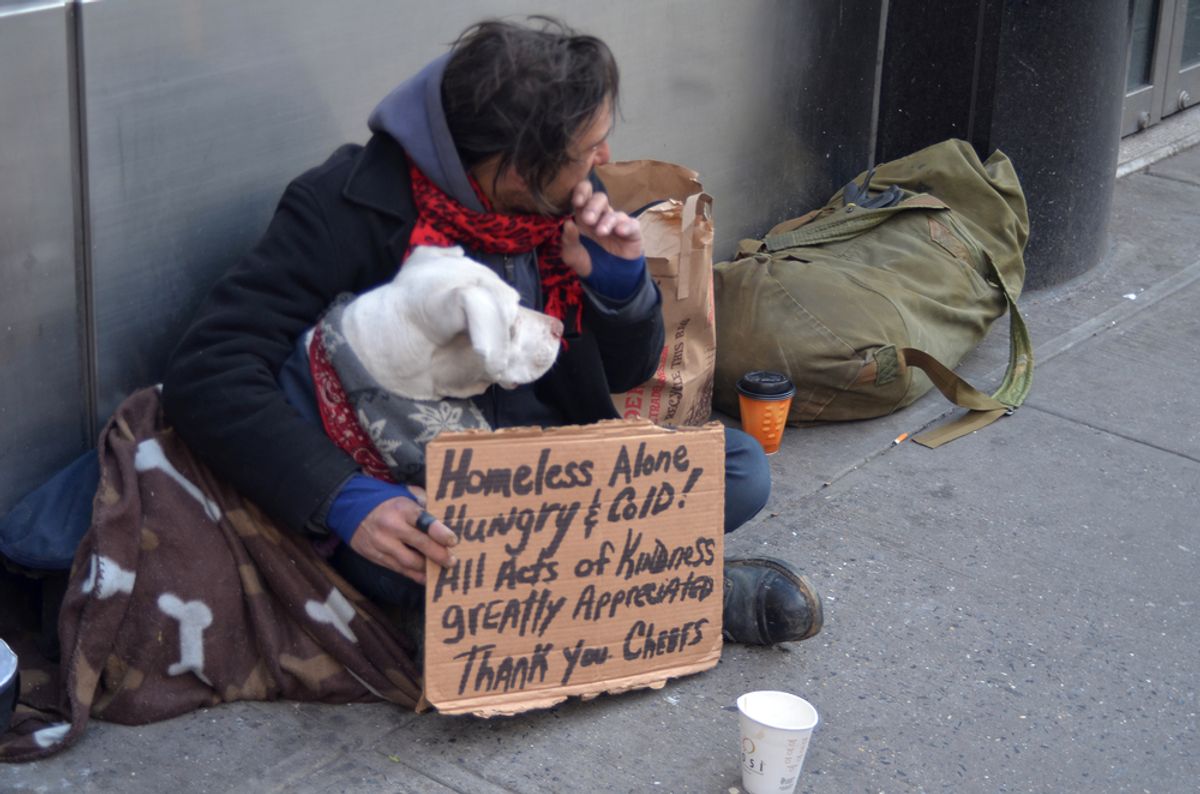Growing up, we were taught not to give money to homeless people we might encounter -- who knows what they might do with it? Better to give food or blankets. While that lesson is generally a problematic one to be teaching to young children, now even distributing food to homeless people (through an organization or program) has been outlawed in 21 cities, while 10 cities have introduced similar legislation, according to a report released by the National Coalition for the Homeless.
"Cities' hope is that restricting sharing of food will somehow make [the] homeless disappear and go away," said Michael Stoops, director of community organizing for the coalition. "But I can promise you that even if these ordinances are adopted, it's not going to get rid of homelessness."
NPR's Eliza Barclay reports:
The measures that restrict food distribution tend to take one of two forms: new rules on the use of public property and new food-safety regulations. Salt Lake City, for example, now requires that anyone preparing and serving food to the homeless get a food handler's permit.
In some cities, like Charlotte, N.C., it's not the local government that pressures the food groups to relocate or limit their programs -- it's community groups practicing "not in my backyard" politics, or NIMBYism, according to the coalition's report. (The coalition notes that its report focuses on cities it has been able to track, but that many more cities may have anti-homeless-feeding legislation that the coalition may not be aware of.)
Criminalizing homelessness is straightforward and wrong; debating the specific techniques used to combat the homelessness epidemic becomes a little trickier. Robert Marbut, a consultant who helps cities deal with homelessness, says, "Street feeding is one of the worst things to do, because it keeps people in homeless status. I think it's very unproductive, very enabling, and it keeps people out of recovery programs."
Marbut argues that food sharing programs should only be near centers that will offer mental health and substance abuse counseling as well as job readiness services.
Homelessness continues to be a serious problem in the United States. Although the total number of homeless people dropped from 2012 to 2013, according to the Annual Homeless Assessment Report, from 2007 to 2013, homelessness actually increased in 23 states as well as Washington, D.C. From 2012 to 2013, 7,864 more people became homeless -- the most in the country -- followed by California, which saw near 6,000 new people become homeless.

Shares